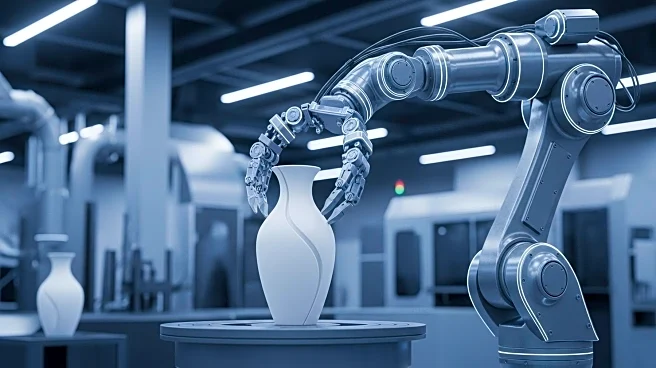What is the story about?
What's Happening?
The traditional building ceramic industry is experiencing a significant contraction, with a reported 12.08% decline in ceramic tile output in 2024. In response, companies like Tian'an New Materials are diversifying into high-tech fields such as AI and robotics. Tian'an New Materials recently acquired an 18% stake in Guangdong Ruobo Intelligent Robot Co., Ltd., marking its entry into the humanoid robot sector. This move is part of a broader trend where ceramic companies are exploring new growth avenues in AI, robotics, and chips to counteract declining revenues and profits in their core business areas.
Why It's Important?
The shift towards AI and robotics represents a strategic pivot for ceramic companies facing economic pressures. By investing in emerging technologies, these companies aim to create new revenue streams and reduce reliance on traditional markets. This diversification could lead to innovations in product offerings and operational efficiencies, potentially transforming the industry landscape. However, the transition involves high technical barriers and fierce competition, posing challenges for companies like Tian'an New Materials as they navigate new technological domains.
What's Next?
As ceramic companies continue to invest in AI and robotics, they may face challenges such as long investment payback periods and the need for specialized talent. The success of these ventures will depend on their ability to integrate new technologies effectively and compete with established tech firms. The industry will likely see increased collaboration with tech companies and research institutions to overcome technical hurdles and accelerate innovation.
Beyond the Headlines
The integration of AI and robotics into the ceramic industry could lead to significant advancements in manufacturing processes, such as intelligent quality inspection and kiln optimization. These technologies promise to enhance efficiency and reduce costs, potentially setting new standards for environmental sustainability and product quality. The industry's transformation may also influence broader economic trends, as traditional manufacturing sectors adapt to technological disruptions.
















